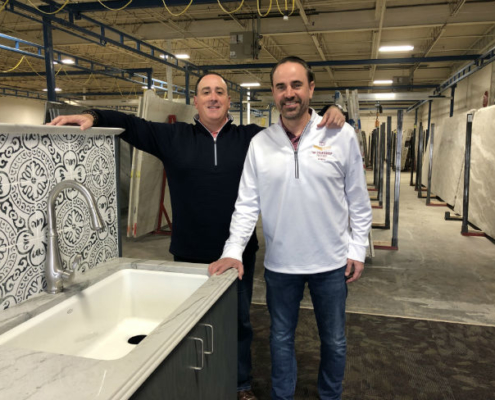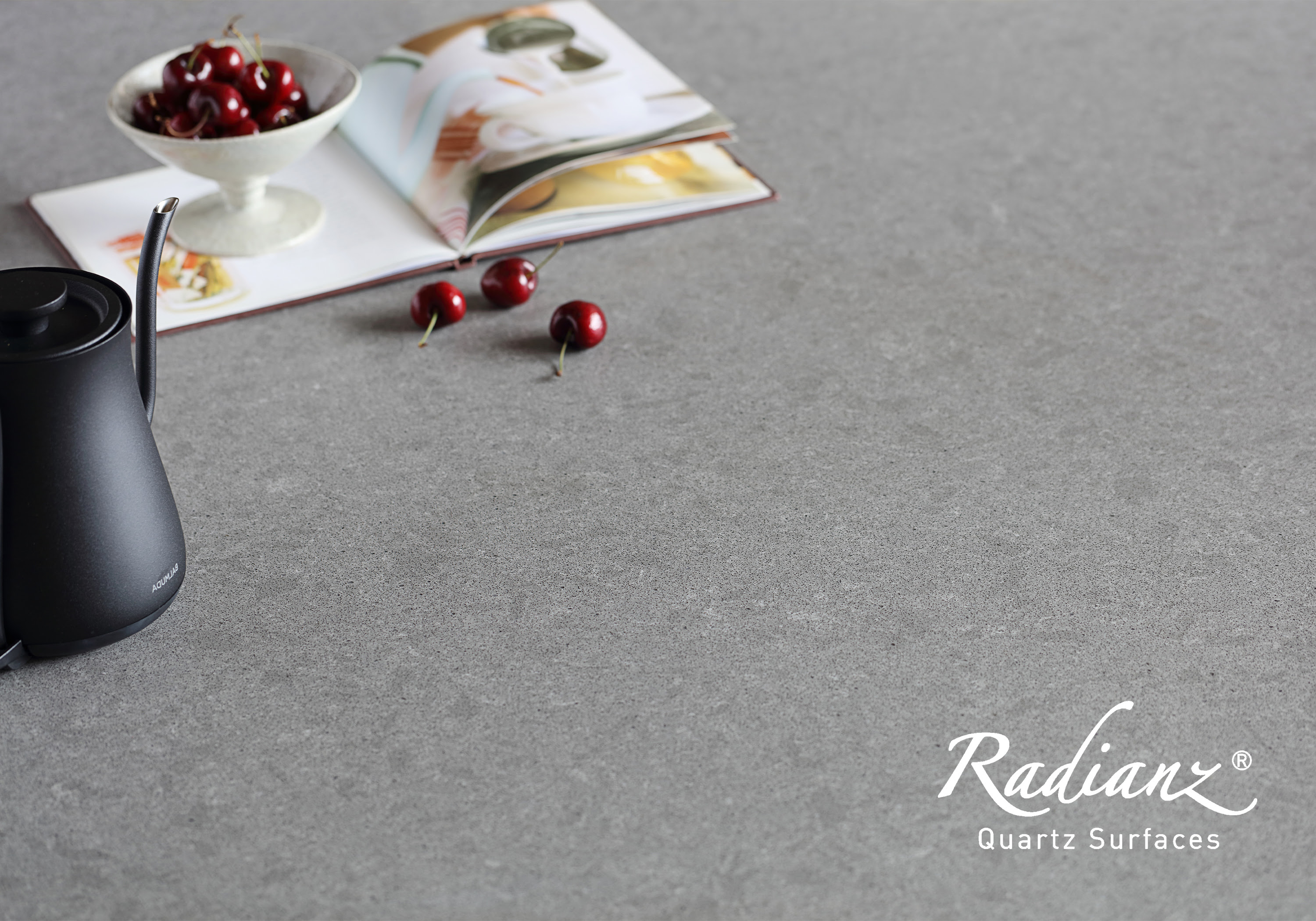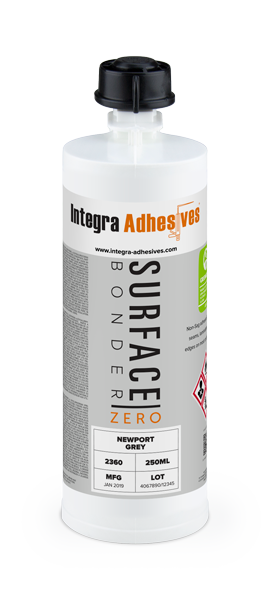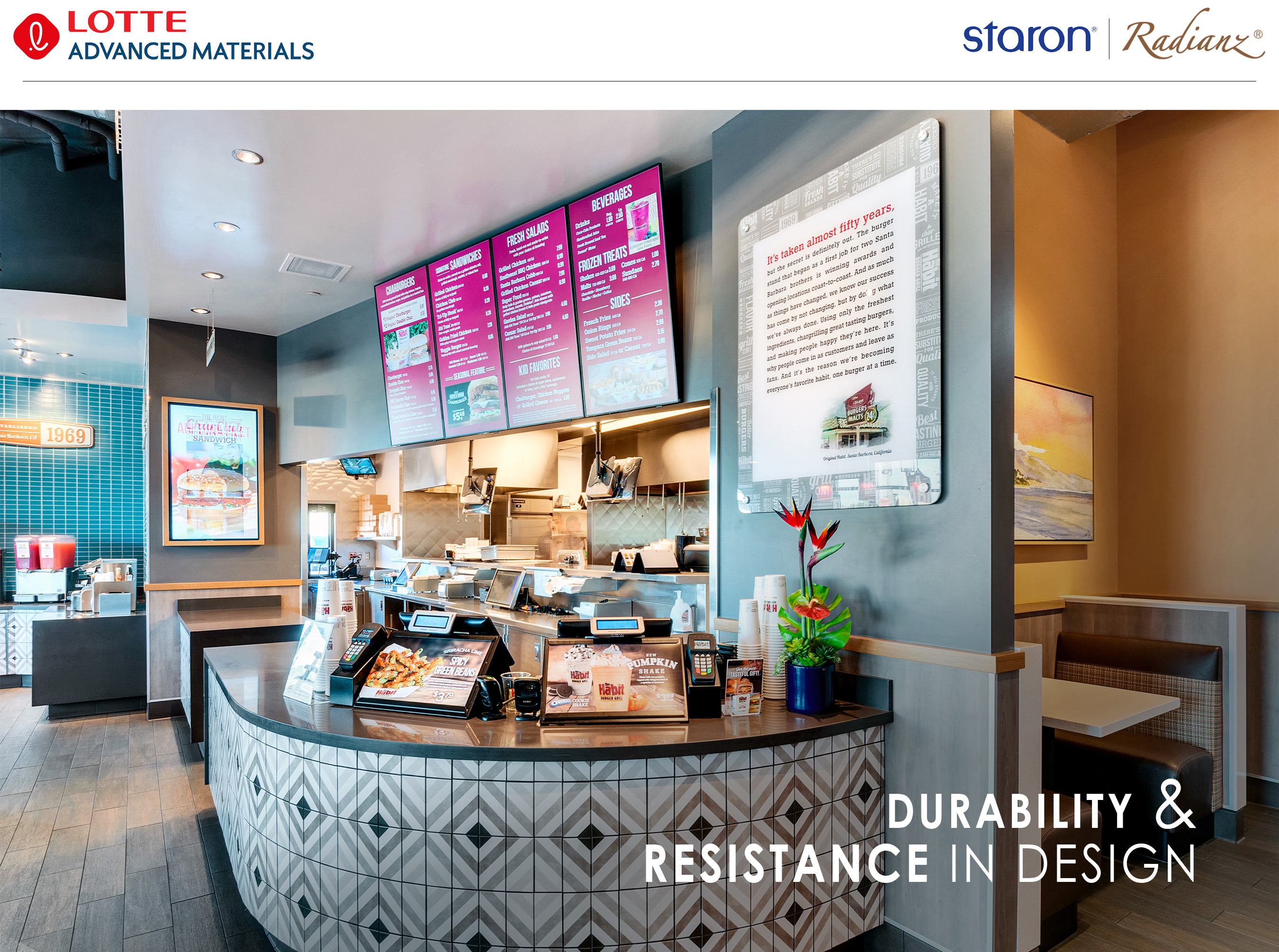This article made possible by ISFA, International Surface Fabricators Association. To become a member CLICK HERE for more information.
While many fabrication businesses have histories rooted in cabinetry or related industries, the story behind The Countertop Factory Midwest (TCF) took a much different path.
The founders of the business, Geoffrey Gran (pictured above left) and Bill Heuer (pictured above right), have been best friends since high school, and after graduating college they lived together in Chicago pursuing their respective careers in sales.
 A few years later, the two parted ways when Heuer went to Georgetown University to earn his MBA and Gran evolved his career into consulting. After finishing his time at Georgetown, Heuer moved to Cincinnati and went to work for Proctor & Gamble, managing high-profile products and programs while Gran became a founder of a start-up company.
A few years later, the two parted ways when Heuer went to Georgetown University to earn his MBA and Gran evolved his career into consulting. After finishing his time at Georgetown, Heuer moved to Cincinnati and went to work for Proctor & Gamble, managing high-profile products and programs while Gran became a founder of a start-up company.
The two kept in touch, often talking about their future, and after eight years Heuer decided he wanted to move back to Chicago with his family, and that’s when they decided they would enjoy starting a business together (and hopefully with huge profits).
“After a long process of weeding out different industries and markets, we settled on countertops,” explained Gran. “We had been lucky enough to befriend two great entrepreneurs, Skip Fritz and Ken Vincitorio, who were already in the countertop business in Florida and North Carolina, respectively. The two showed us all of the things they did right when opening up their shops (small list) and all of the things they did wrong (larger list). That began our education in countertops and our admiration for this industry.”
On July 1, 2005, the two started The Countertop Factory Midwest in a 6,000-sq.-ft. facility, with a van, a case of Corian® solid surface and a desire to succeed. “It was just the two of us calling on businesses that needed our products,” said Gran. “We approached every opportunity with a sales and marketing perspective.”
With their sales backgrounds and some solid effort, before long the two secured a few regular customers that provided them annual revenue to keep them going while they further built the business. “Our goal was simple. Get great employees and treat them great, then let those great employees take care of your great customers,” added Gran. “The end result is a great company.”
Road Map to Success
With nearly 14 years of business now in its history, TCF has come a long way. It now operates out of a 65,000-sq.-ft. facility in the western suburbs of Chicago has 150 dedicated employees and services all of Chicagoland, downstate Illinois, Southern Wisconsin, and Northwest Indiana.
Not only does the company continue to offer solid surface, in order to make it easy for its customers to get the countertops they want from the company, it provides all major surfaces. “We are the only countertop fabricator in Chicago that manufactures all four of the major surfaces in-house: natural stone, quartz/other, solid surface, and laminate,” explained Gran. “In the ‘other’ category we include sintered material, ultra-compact surfaces, porcelain, and green products.”
Looking at the numbers, TCF goes through 170,000 sq. ft. of natural stone per year (about 30 percent of its total volume); 275,000 sq. ft. of quartz/other annually (about 50 percent of its total); 85,000 sq. ft. of solid surface per year (about 15 percent of its total); and 30,000 sq. ft. of laminate annually (about 5 percent of its total).
And not only does it offer all of the premium surfaces, it also goes to market in a variety of different ways, because the company specifically decided it did not want to be beholden to any customer or market and made diversity a priority (both with its customer base and the clients within each segment). The market shares break down with the big box stores being about 40 percent of its business, production builders and commercial work each being about 25 percent of its market, and kitchen & bath dealers and custom builders/retail sales each being about 5 percent of its customer base.
As the company grew in size, product offerings, and service area, one key element it relied upon was taking advantage of the technological advancements available to it. “From the very beginning, we recognized the need for technology and automation in our business in order to keep up with demand while taking great care of our customers,” said Gran.
As such, the company is very serious about this aspect of its fabrication process. In its hard surface facility, the company uses two Park Industries dual-table Fusion sawjets; four large-format Park Industries Titan CNCs; a Park Industries Fastback 2 edge polisher; a BACA Systems MiterExcel miter machine; a HydroClear80 water recycling system by Park Industries; a Water Treatment Solutions filter press for water recycling; a Pathfinder system that takes digital images of every slab (to be used with Slabsmith), and overhead cranes throughout the entire facility.
In its solid surface/laminate shop, TCF has two CNC machines, a thermoforming oven, a v-grooving machine, a custom dust collection system in its finishing area, and a variety of other basic cutting, routing and other equipment required for countertop fabrication. The entire company runs on the Moraware software platform, allowing easy access to all information necessary to run a business. In fact, TCF is completely paperless from the field operations to the office and the fabrication facilities.
Going one step further, the company also offers a variety of value-added services. “In being consistent with our theme to be a single-source provider, we have expanded our services to better assist our customers with their projects,” said Gran. “We have licensed plumbers on staff, as well as experienced tile setters. We also have a commercial millwork facility that offers plastic laminate casework and custom pieces for our commercial customers.”
Additionally, in order to assist customers with a better assortment of materials at fair prices, TCF stocks more than 60 colors in its facility that it can sell at set pricing. This is designed to allow customers the ability to sell the company’s products with ease and confidence, regardless of what material is wanted. Ultimately, it has proven to be a great sales tool for the company and a winning prospect for its clients.
The Differentiators
Obviously, a big differentiator for the company is the breadth of products it works with, which can lead to some unique challenges. “The benefit of working with all materials is that we can service all of our customers’ countertop needs,” explained Gran. “Our customers are busy and because we are a single source for countertops, they only need one vendor to complete their countertop projects [including plumbing and tile setting].”
As for the downside of offering so many options, Gran said, “While we do not consider it a drawback, we do need to have different skillsets for the different product segments, so labor is always a concern. However, with automation and cross-training, we have been successful at offering all of these products, and all with the same great quality.”
Although introducing state-of-the-art equipment allowed the company to increase capacity, reduce labor and improve quality, it sees people (both its employees and those in the industry as a whole) as significant assets.
“We attend all of the industry trade shows, participate in trade association groups, such as Rockheads Group, ISFA, NSI and SFA, and have close relationships with the equipment leaders in our industry like Mike Schlough [president of Park Industries] and Chuck Russo [owner of BACA Systems] to understand the next innovative technologies,” said Gran. “And while many companies talk about their employees as being important, we truly mean it and live it every day. We are a great company today because of all the amazing people that come to work to help make a difference in our customers’ lives. And we transition to an amazing company because of our employees and their efforts to make TCF best-in-class.”
The company recognizes that its advanced machinery, solid employees and industry relationships are critical components to the No. 1 business goal, which is to generate tall profits. But, it sees the generation of mass profit as an opportunity to continue to reinvest in all levels of the company in order to drive it further. That said, these investments don’t stop with employees and machinery.
“We have integrated many different software systems that help us manage our business,” explained Gran. “We have become data analytics experts in order to better understand and improve our business metrics.” These metrics not only help the company to grow, but also to grow smartly and to analyze where improvements are needed, such as maximizing the value of each sale.
“We realized that we were excellent in selling countertops, but really did not focus on options,” Gran expounded. “We recognize how hard it is to get a customer, and it is our responsibility as the countertop experts to make sure we have educated our customers on everything that is available to them. So, we started a program called ‘hot sauce’ where our entire company, at different parts of the project cycle, will make sure to talk to the customer about options, upgrades and available features for their countertops. Once you can get a customer to recognize that their countertops are really an investment [vs. a cost], their view of purchasing options becomes much clearer.”
The “hot sauce” program has created what can only be described as amazing results, with the average upgrade adding 65 percent directly to the bottom line in pure earnings, while incentivizing employees/accounts who participate in selling. “So $100,000 in ‘hot sauce’ sales will add $65,000 in net earnings,” explained Gran. “So, if an average fabrication shop is earning 3 percent EBTIDA, then that $65k is equal to adding $2,167,000 in revenue!”
Those kinds of sales aren’t without plenty of effort, as The Countertop Factory Midwest’s sales team spends 80 percent of its days on the road in front of current and prospective customers, which is obviously paying off. “As a sales and marketing company, we have always relied on a sales staff to find opportunities, build relationships and close deals,” said Gran. “Our staff is professional, well trained and dedicated to customer satisfaction. In fact, our innovative approach has allowed us to create another company where we offer sales and marketing consulting for fellow fabricators.”
TCF has even started a technology company called Fifth Gear Technologies where it develops software applications specifically for fabricators created by fabricators. For example, it has software called SPEEDlabel (www.speedlabel.net) that allows a sawyer to place an individual label complete with part-specific data, a drawing of the part with dimensions, finished profiles and other important data on each part that is cut instead of handwriting or using masking tape. Another product of that offshoot company is an engineering software called SPEEDdraw (www.speeddraw.net) that takes a raw DXF file from a laser measuring device and creates a final shop ticket along with G-code ready files in just a few minutes. According to Gran, not only does this reduce many potential human error elements of measuring and CAD, but it also eliminates a lot of the busy work at the field measure, allowing employees to spend more time with customers.
Looking to the Future and Sharing from the Past
Gran had plenty of perspective gained over his time in the countertop industry, as well as useful advice to offer his contemporaries. “Over the past 14 years, we have seen our hard surface materials increase in popularity,” he explained. “Of course, quartz has taken a major lead over natural stone, but we expect a slight shift back over the next few years as the color palettes change in the design community. Also, any pending tariffs on Chinese quartz will help shift some market share that direction.”
With a company motto of “If you can dream it, we can build it,” it pays for the business to keep an eye on trends and new product developments. “We are very excited about the new products that are being developed by some of the leading companies in our industry,” said Gran. “DuPont is launching a sintered product called Corian Sintered, and Wilsonart is now producing a hard performance product called Thinscape, plus the new colors of solid surface and laminate are wonderful. Porcelain has also hit the design community with force, and we are seeing some pretty amazing aesthetics that were previously not available in traditional materials.
“Listen more than you talk (which is why you have two ears and only one mouth). For anyone who knows me, this a tough one, but I work at it every day,” said Gran by way of advice. “If you hire great employees, let them be great. Do not micromanage them into mediocrity. A majority of the change and improvement that happens at TCF comes from our staff. Your employees have great things to say so listen to them.”
He also said there is a list of four key elements that can improve any business:
• Be honest
• Work with a sense of urgency
• Be compassionate with your employees, customers, and vendors
• Communicate, communicate, communicate
“There are many processes you have to follow to be successful; there is not a magic pill,” said Gran. “But there are some rules that we incorporated into our daily lives, which have proven to be great contributors to our success.”
One main rule is “Don’t be afraid of change, but do be afraid of being stagnant.” He explained this as the process of always trying to innovate, reviewing processes and finding opportunities to be better. “Change really only happens and becomes part of a company’s culture if it is endorsed by management,” he said. “If you make something a daily passion, report it out, and have accountability, then you can affect positive change for a long time.”
Another rule he touched on was “Be open and share.” He described this idea in a couple of different terms, one being that failing to share means no one will know how you are feeling, or if someone is doing a good (or bad) job; and another being if you think that your way is the only possible solution, you are undoubtedly missing out on some great ideas and opportunities.
Sharing some final thoughts, Gran reflected on his path and if knowing what he knows now, would he have still gone into the countertop industry, and without a pause, he said he would. “This industry is hard. Measuring, material handling, manufacturing and installing material that can be fragile can prove to be difficult, but every day we learn and get better. Our industry is still relatively new and we have mountains to climb (and excavate) until this industry is not as volatile.
“We have elected to become very involved in this industry,” he concluded, “It has brought us many great friends and opened up many doors of opportunities.”
PHOTE CREDIT – ISFA





 A few years later, the two parted ways when Heuer went to Georgetown University to earn his MBA and Gran evolved his career into consulting. After finishing his time at Georgetown, Heuer moved to Cincinnati and went to work for Proctor & Gamble, managing high-profile products and programs while Gran became a founder of a start-up company.
A few years later, the two parted ways when Heuer went to Georgetown University to earn his MBA and Gran evolved his career into consulting. After finishing his time at Georgetown, Heuer moved to Cincinnati and went to work for Proctor & Gamble, managing high-profile products and programs while Gran became a founder of a start-up company.




